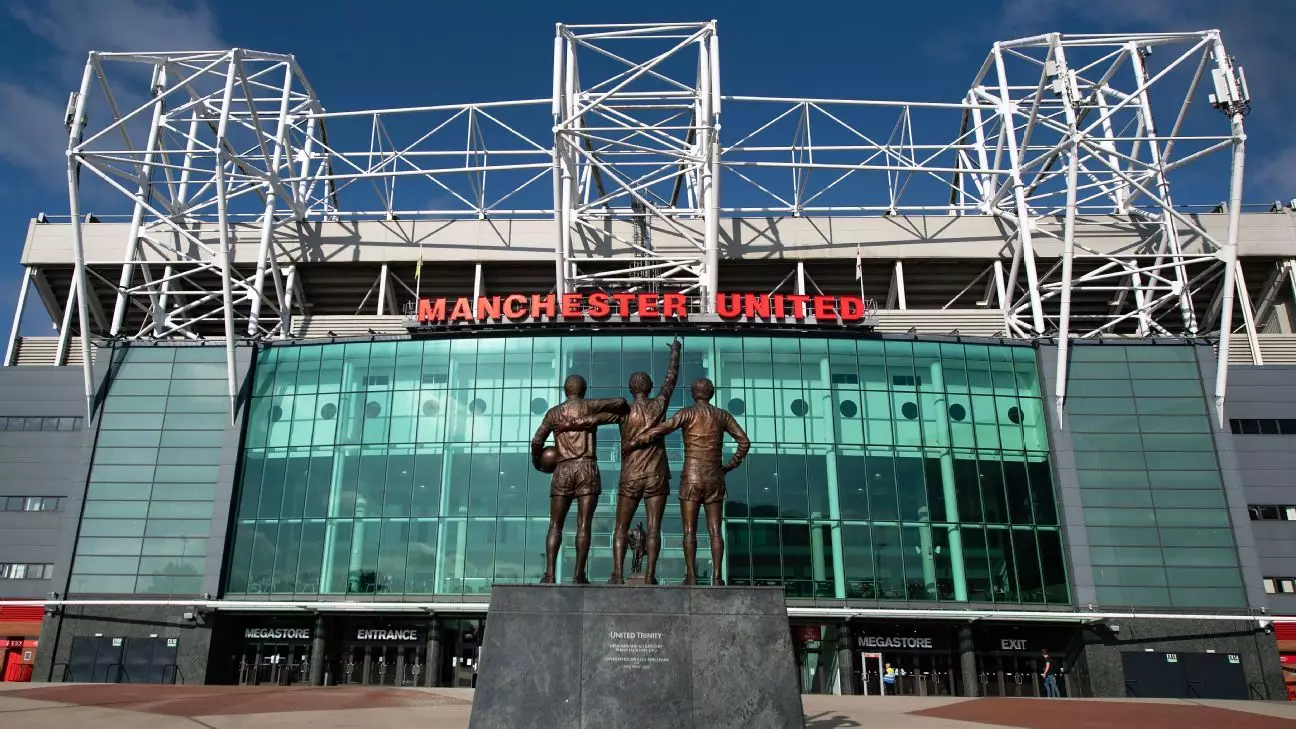Manchester United, a club steeped in history and prestige, finds itself grappling with severe financial turbulence following the abrupt dismissal of manager Erik ten Hag just four months after extending his contract. The repercussions of this decision are laid bare in the club’s latest quarterly financial report, which reveals not only a staggering compensation payout but also a significant decline in broadcasting revenue. As the club’s hierarchy navigates these challenges, the implications for both the on-field performance and the financial stability of Manchester United are profound.
United’s decision to relieve Ten Hag of his duties in October not only reflected a tumultuous season but also came with a hefty price tag. The £14.5 million compensation bill, which also encompasses payments to Ten Hag’s coaching staff and former sporting director Dan Ashworth, exemplifies the financially detrimental consequences of a managerial misstep. This significant exit cost comes as a harsh reality check for a club that had previously celebrated a FA Cup victory and subsequent Europa League qualification just months prior. The decision to extend Ten Hag’s contract seems increasingly untenable in hindsight, and the financial reports detail the explosion of costs under the category of ‘Exceptional Items.’
The financial implications extend significantly further than just personnel changes. The latest accounts disclose a £44.8 million decline in broadcasting revenues, a staggering 42.1% drop compared to the previous year. This downturn can largely be attributed to Manchester United’s transition from the prestigious Champions League to the less lucrative Europa League. Against this backdrop, the report paints a harrowing picture of a club that is struggling not only with its management decisions but also with the concrete ramifications these decisions have on its financial viability.
While United saw an increase in commercial revenue—attributable to a new sponsorship deal with Qualcomm—this has not been enough to mitigate the overall financial distress. The mounting net finance costs, which soared from £300,000 to £37.6 million, further compound the club’s woes. These figures reveal not just the effects of poor management decisions but also a club wrestling with financial instruments that have left it vulnerable to global market fluctuations.
In light of these alarming numbers, Manchester United’s leadership, including chief executive Omar Berrada, has stated their commitment to improving the team’s league performance while pursuing other avenues of revenue generation. As the club sits perilously close to the relegation zone, the pressure is mounting. The fact that the men’s team must now look to the Europa League as their primary gateway back into European football underlines the critical nature of their on-field performance—failure to perform risks pushing them further into financial despair.
Furthermore, the club has undertaken rigorous cost-cutting measures, with over 200 redundancies implemented since Sir Jim Ratcliffe’s INEOS Group acquired a 27.7% stake last year. As fans and stakeholders alike anxiously anticipate further cuts, the sustainability of the club’s operational model remains a point of contention. The board’s promise to continue investment in the Carrington Training Complex and Old Trafford’s redevelopment is ambitious but raises questions about the fiduciary responsibility to fans who are already disillusioned by ticket price hikes.
The Manchester United Supporters Trust (MUST) is outspoken regarding the club’s financial decisions, criticizing potential price hikes for match tickets as “futile and counterproductive.” This sentiment underscores a growing frustration among fans who feel that the club’s longstanding mismanagement is being unfairly transferred to its supporters. The emotional and financial investment of fans is at odds with the crippling debt obligations that have plagued the club for years, leading to calls for a more transparent and accountable structural overhaul within the club’s management.
Ultimately, the situation at Manchester United calls for deeper reflection not just on team leadership, but on the broader governance of the football institution itself. As the club wades through these tumultuous waters, the repercussions of the Ten Hag debacle will echo far beyond the football pitch, redefining the landscape of a once-dominant club striving for a future free from the shadows of poor management and financial disarray.
In essence, Manchester United stands at a critical juncture, battling significant financial and operational challenges following the controversial firing of Ten Hag. The club’s leadership must navigate a path that balances financial prudence with a transformative vision that can reignite the passion of fans and restore its legacy. Whether or not they can overcome their current trials and emerge stronger remains to be seen, but the clock is ticking for a club that has long been regarded as a titan of football.

Leave a Reply